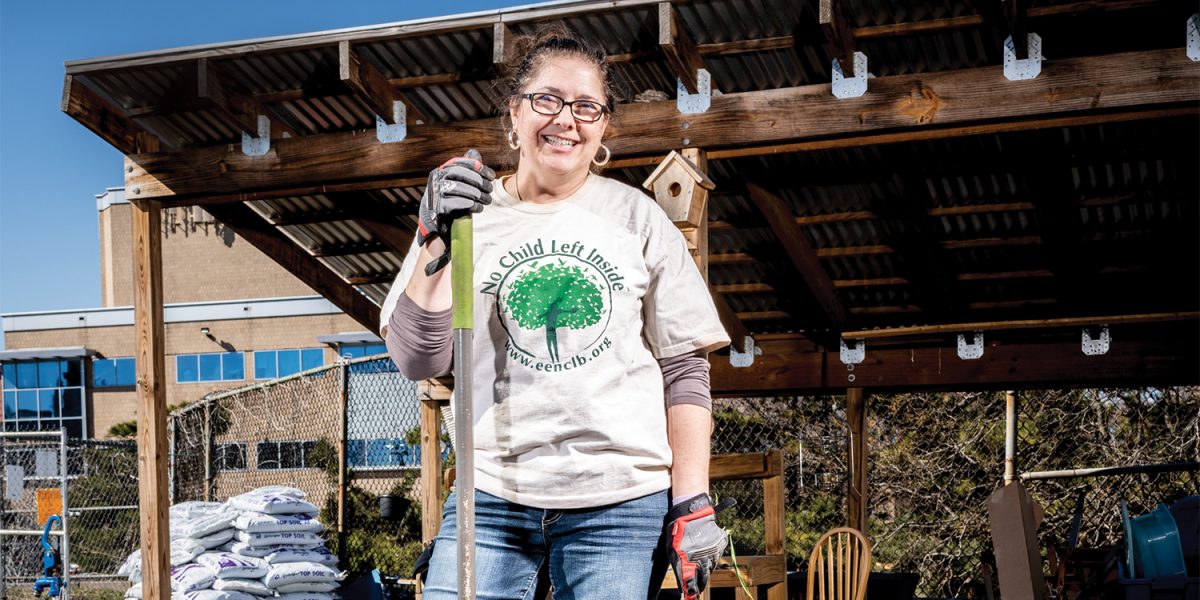Education & Family
Cameo: Nicole Veltre-Luton
The Digital Harbor High teacher discusses providing free outdoor education to Baltimore City youth.
Baltimore Inspiring Connections Outdoors (BICO) has been providing free outdoor education to Baltimore City youth for 20 years. What do students gain from these trips?
Results run the gamut from students becoming interested in hiking or recycling to learning new things like how to ride a bike, how to cook outside, or how to put up a tent. I’ve had five or six kids get their scuba certification after one of our trips. It could lead to a job opportunity for this child who now has a new skill over the majority of the planet. It’s about making those kinds of connections for the kids and being the push that makes it happen.
You’re also a teacher at Digital Harbor, where you’ve created onsite outdoor spaces for students, such as the school garden. What motivated you to start it?
A few years ago, there were kids in my class who said they were allergic to tomatoes but would eat pizza or ketchup. They didn’t have the knowledge to know that ketchup is made from tomatoes. There were lots of kids who really didn’t have any idea of where their food came from, and it made me interested to find out why kids thought what they thought. Now there’s an on-campus place for kids to grow things and start to see themselves and their world differently.
In 2016, you helped Digital Harbor earn its Maryland Green School certification for its environmental sustainability efforts. Why does that certification matter?
Authentic science and biology always win in my book. In a Green School, students are learning about things like recycling through the lens of science when they write about it or do a service-learning project. It’s also an equity piece. As a parent myself, I want the same things for the students at this school that I want for my kids, whether they live in Baltimore City or not. There shouldn’t have to be a Green School certification to ensure that everyone is learning about these topics, but if that’s what it takes, then that’s what we’ll do.
What’s the value of teaching environmental science?
I remember teaching about the importance of water quality to kids in 2004, and I told them then that there would be wars over access to clean water in their lifetime and that they will pay more for water than ever before. I’ve seen past students since then who have told me, “I thought you were crazy when you said that, but now it’s 2019 and it’s not so ridiculous.” If kids are not made aware that there are major climate and environmental issues going on, then we’re not helping them. If they don’t learn about it [at school], who is going to teach the next generation?
How do students apply lessons learned in the classroom to their outdoor experiences?
We were walking through a field once and there was a toad on the ground. One of my students noticed him and said, “That’s camouflage!” I could’ve cheered. Those are kind of connections and experiences we need more of. They may not think [science] is palatable, but depending on how you present it, they’ll realize they’re learning about what’s around them.
